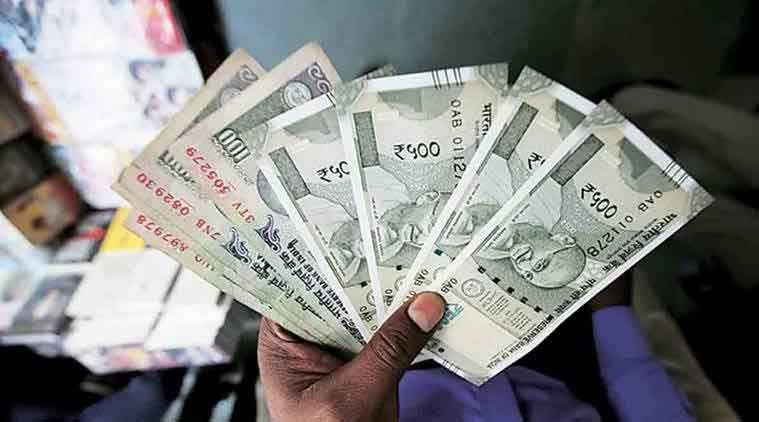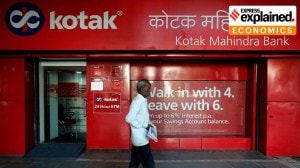- India
- International
Banks red-flag looming retail loan default, push for 6-month moratorium
Coronavirus (COVID-19): The extended lockdown across the manufacturing and services sectors, the resultant job losses along with the wave of salary cuts are projected to start impacting the repayment capacity of retail borrowers.
 In response to the mounting NPAs of the industrial sector since 2012-13, banks, both private and public, diversified their portfolios towards services and retail loans as corporate credit off-take slowed sharply.
In response to the mounting NPAs of the industrial sector since 2012-13, banks, both private and public, diversified their portfolios towards services and retail loans as corporate credit off-take slowed sharply.
Coronavirus (COVID-19): The possibility of loan defaults spilling over from the corporate sector to the retail segment, a key growth area for lenders in recent years, has been flagged as a growing concern by bankers at a recent review meeting.
The extended lockdown across the manufacturing and services sectors, the resultant job losses along with the wave of salary cuts are projected to start impacting the repayment capacity of retail borrowers.
At a meeting last week coordinated by the Finance Ministry, with representatives from the Reserve Bank of India listening in, bankers flagged this looming worry over retail loan defaults. This comes on top of the expected rise in defaults by corporates and micro, small and medium enterprises (MSMEs) that are directly impacted by the lockdown.
In response to the mounting NPAs of the industrial sector since 2012-13, banks, both private and public, diversified their portfolios towards services and retail loans as corporate credit off-take slowed sharply.
Rate cut and loan-repayment moratorium | How RBI is trying to reduce pandemic stress

The lockdown’s effect on destruction of demand and slowdown in private consumption, along with the stress in the organised segments of both services and manufacturing sectors, increases the possibility of defaults among retail segments, banks have warned.
While home loans constitute the biggest chunk of retail loans, the main source of worry, at least in the first phase, is the riskier segments of the retail segment: credit cards, personal loans, loans for consumer durables, loans against property and vehicle loans.
Read | In March, people hoarded cash, withdrew four times more than monthly average
While RBI has allowed banks to offer a three-month moratorium from March to May on loan repayments, a growing view within the banking sector is that this relief may not be enough to avert defaults and an extension of the moratorium may be required as the lockdown goes to April 30.
Even after that, the possibility of a quick resumption of industrial activity and service establishments such as eateries, malls, movie halls, appears bleak, an official said.
The total outstanding of retail personal loans (including housing, auto, education loans and advances against FDs) amounted to Rs 24.97 lakh crore as of January 2020.
State Bank of India, India’s largest bank, reported that 37 per cent (Rs 719,766 crore) of domestic advances were in the retail segment as of December 2019 as against 33 per cent a year ago. The retail sector witnessed the highest growth rate in credit at 17 per cent during this financial year (up to February 2020), marginally up as compared with previous year’s growth.
At the same time, overall bank credit growth was sluggish at 6 per cent, according to data released by the RBI last week.
When contacted, many bankers argued for an extension of moratorium. “The three-month moratorium is not enough for retail borrowers, it should be extended to six months as announced by central banks of various countries. It was unwise not to extend the moratorium to NBFCs and microfinance firms which are struggling in various states as collections have stopped. Bad loans are slated to rise after May-June,” said a senior official of a leading public sector bank.
Queries sent to the RBI on this issue did not elicit a response.
As the Covid-19 crisis worsens, many countries have already given a six-month moratorium to check bad loans and help bring operations back on track.
The Monetary Authority of Singapore said individuals can apply to their respective retail banks to seek a deferment of both principal and interest repayment of residential property loans until December 31. Malaysia’s central bank said customers would be allowed to delay repaying their existing loans for six months.
In the US, two mortgage giants Fannie Mae and Freddie Mac have instructed lenders to grant their customers more flexibility in either lowering or halting home loan repayments for up to 12 months, effectively granting relief to half of all American home loans. Italy’s banking association asked for a one-year suspension of rules that force them to identify past-due loans as being in default.
The big worry is regarding the situation after May, when the moratorium ends. “For three months, we are not raising any demands in terms of instalments. We believe that as long as we return to normalcy within the three-month period which we anticipate as of now, these pressures should be less, particularly on individuals. When it comes to corporates, there are different sectors which are likely to be impacted. I think an assessment of what the impact is likely to be and what sector-specific solution may be required…this can be done once the lockdown is lifted,” said the CEO of a state-owned bank.
The RBI had, in late December 2019, cautioned banks that lenders have been shifting their focus away from large industrial loans towards retail loans, as NPA ratios of the latter have traditionally been low. “This diversification strategy, while helpful as a risk mitigation tool, has its own limitations: the slowdown in consumption and overall economic growth may affect the demand for and the quality of retail loans,” the central bank said.
Housing loans had a 52.5 per cent share in total retail/ personal loans during April 2019 and February 2020, which registered a growth of 17.1 per cent as compared with 18.8 per cent in the year ago period. The growth in retail sector is driven by consumer durables (43.4 per cent), credit card outstanding (33.0 per cent) and vehicle loans (10.3 per cent). The growth in consumer durables and credit card outstanding segments can be attributed to strong consumer demand during the festive season.
Here’s a quick Coronavirus guide from Express Explained to keep you updated: What can cause a COVID-19 patient to relapse after recovery? | COVID-19 lockdown has cleaned up the air, but this may not be good news. Here’s why | Can alternative medicine work against the coronavirus? | A five-minute test for COVID-19 has been readied, India may get it too | How India is building up defence during lockdown | Why only a fraction of those with coronavirus suffer acutely | How do healthcare workers protect themselves from getting infected? | What does it take to set up isolation wards?
Apr 24: Latest News
- 01
- 02
- 03
- 04
- 05







































